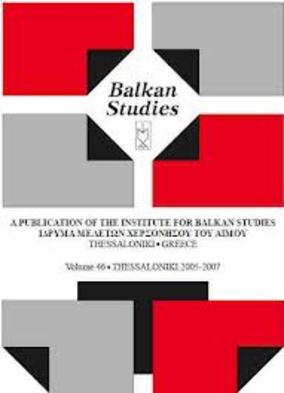Cultural patriotism in the Southern Balkans : The case of Greece (1833-1848)
Part of : Balkan studies : biannual publication of the Institute for Balkan Studies ; Vol.41, No.1-2, 2000, pages 43-81
Issue:
Pages:
43-81
Section Title:
Articles
Author:
Abstract:
Since the very first days of the Greek state, there was considerableactivity in supporting the cultural advancement and education of the nation’syouth. The prospects for acculturation were directly connected with Greece’s“mission” to channel the knowledge of the West to the East. This “mission”was put together, especially during the Romantic period of modern Greekhistory, out of existing cultural material which the Greeks regarded assymbolic of the nation. The creation of this consciousness and the systematiccultivation of cultural supremacy led to a kind of “self-confidence” and wenthand in hand with the birth of irredentist prospects.The ideology of “Hellenism” gave birth to a Greece which felt it had totake cultural action as the heir to the ancient cultural heritage. In many cases,the message was clearly received by the Greek people. And so, to a considerableextent, apart from government support, the schools (which were themeans by which the Greek people achieved their cultural advancement) wereorganized and run thanks to the financial sacrifices made by ordinary, poorpeople, who realised the importance of education for the human race in generaland the contemporary Greeks in particular. The Church, some municipalauthorities, and a few private donors also made a substantial contribution. All,people and institutions, were motivated by the same ideology of “Hellenism”and “cultural patriotism”, which was assiduously fostered by politicians andintellectuals and propagated by the Greek schools.One is also struck by the fact that, on the Greek islands at least, at a timewhen the social roles of the two sexes were quite distinct, because girls, mainly,were excluded from the productive process, parents were very concernedwith their daughters’ education. However, there is a possibility that all thesimple, illiterate Greeks who made a contribution to the education and culturaladvancement of the nation might have not nursed conscious sentiments of “culturalpatriotism”. In many cases, simple, illiterate peasants adopted the ideologyof their socio-economic superiors and of the intellectuals, and as a result made an equally heartfelt contribution to the educational process out of their own meagre finances.
Subject:
Subject (LC):




